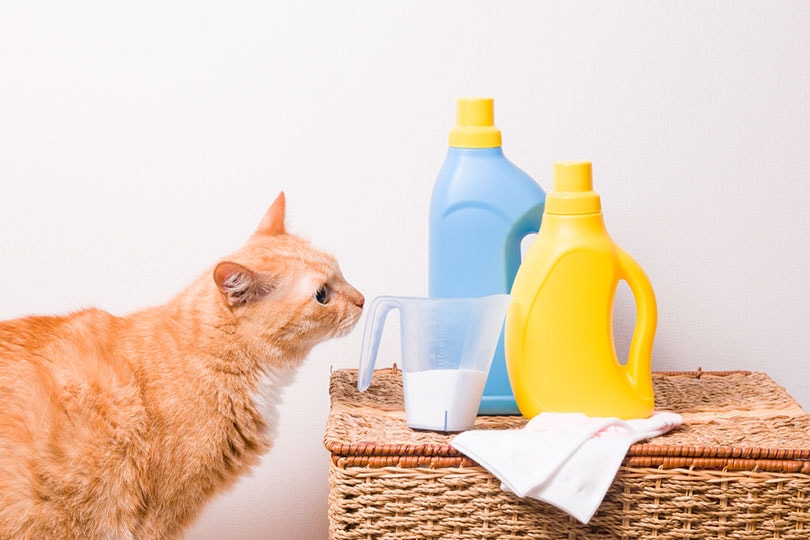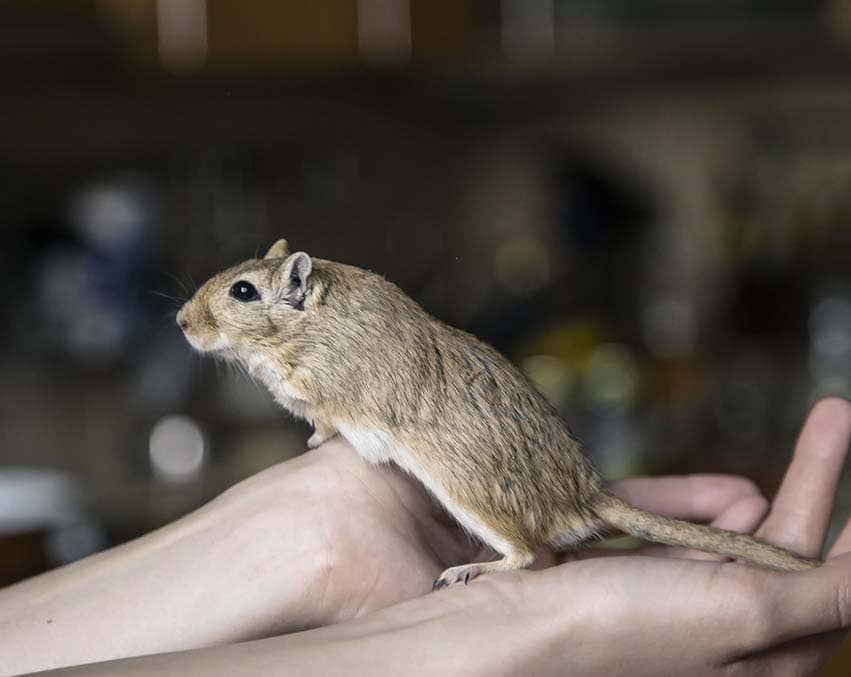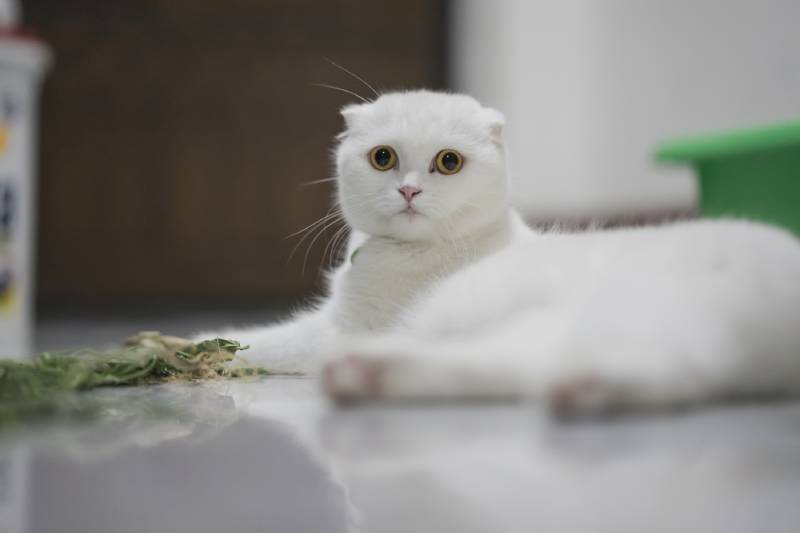VET APPROVED

The information is current and up-to-date in accordance with the latest veterinarian research.
Learn more »Click to Skip Ahead
If you have encountered your cat taking a liking to the smell of bleach, you might be wondering what the possible causes for this are. You may have observed your cat’s strange antics of rubbing themselves in an area where bleach has recently been used.
We don’t know why some cats react strongly to bleach, but it is thought to be related to them misinterpreting the scent as that of another cat. We will discuss this more in detail as well as the risks bleach can pose to your cat.

Why Cats Like the Smell of Bleach
Bleach is a household cleaner and is a broadly descriptive word that applies to a variety of chemicals that whiten fibers or disinfect surfaces. Chlorine, sodium hypochlorite, calcium hypochlorite, and hydrogen peroxide can all be classified as bleaches. However, sodium hypochlorite, commonly called chlorine bleach, is the most used household cleaner.
We can’t know if cats really like the smell of bleach, or if they do why exactly this is, because they can’t communicate their experience to us with words. Cats have a much stronger sense of smell than we do and experience the world differently because of this.
In general, they tend to dislike strong fragrances like certain perfumes, eucalyptus, or rosemary. That’s why it can be baffling to us that they seem to enjoy the scent of bleach.
We can only make assumptions about what cats experience based on their behavior. Cats that smell bleach often show behaviors like rolling, head rubbing, and licking. Most cats have a strongly positive reaction. So, who knows? Maybe it smells amazing to them.
One theory, which makes sense from a human perspective is that because the chlorine in bleach smells like ammonia, which is released when urea in cat urine breaks down, the cat interprets the bleach as the presence of another cat.
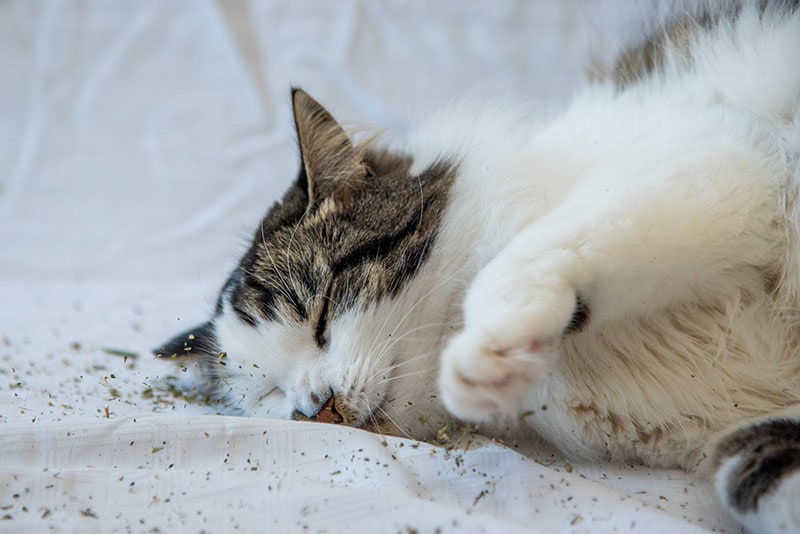
Bleach Toxicity in Cats
Unfortunately for those felines smitten with bleach, cats and bleach don’t mix. In general, the more concentrated the bleach the more likely for cats to have a bad reaction to it. They can be exposed through inhalation, licking the bleach, or licking their paws after they have walked in bleach.
They might also drink bleach in water. Even a splash of bleach in the face could cause problems.
Bleach is corrosive and can irritate and damage the airways, lungs, eyes, mouth, esophagus, and digestive tract. If large amounts of chemicals are inhaled or ingested cats can also develop electrolyte and metabolic disturbances.
This is why you should use minimally concentrated bleach or more pet-friendly products if you have cats. You should also dilute them before use and rinse off afterwards. Never allow your cat to ingest bleach and make sure the area is well-ventilated before letting your cat back in.
If your cat shows signs of a reaction after being exposed to bleach, take them to the veterinary clinic immediately. If you witness the exposure you can rinse the eyes or mouth if possible. Signs of bleach toxicity in cats include:
- Coughing
- Sneezing
- Gagging
- Drooling
- Lip-licking
- Vomiting
- Lethargy
- Not wanting to eat
- Sores in mouth
- Diarrhea
- Wobbly gait
- Difficulty breathing
- Collapse
- Wounds on skin
- Red, watery eyes
- Squinted eyes
If you have additional questions about cats and bleach or think your cat might be suffering from toxicity, you should consult a vet.

Frequently Asked Questions (FAQ)
Why does my cat rub in bleach?
Your cat rubs on bleach because they like the smell. Perhaps this is all there is to it, but some people think they are reacting to the perceived presence of another cat.
Does bleach destroy cat urine?
You should not use bleach on cat urine, because this can cause a chemical reaction that results in toxic chloramine gas being released. If your cat has urinated in your house, use enzyme cleaners that will break down the urine to remove the smell. These products also won’t lighten the carpet in the same way that bleach would.
If you're trying to find an enzyme cleaner that does it all, we highly recommend our favorite cleaner, the Hepper Advanced Bio-Enzyme Pet Stain & Odor Eliminator Spray.
| Rating | Image | Product | Details | |
|---|---|---|---|---|
 |
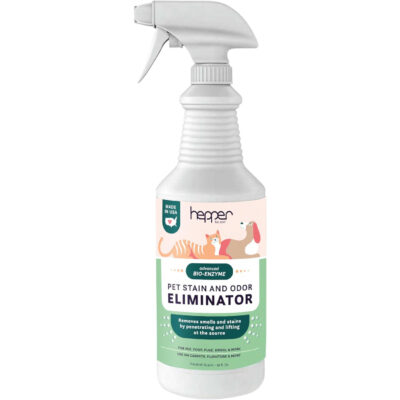 |
Hepper Advanced Bio-Enzyme Pet Stain & Odor Eliminator Spray |
|
CHECK PRICE |
It permanently removes the very worst stains and smells you can imagine and makes clean up a breeze. There's even a 100% satisfaction guarantee! Click here to order a bottle today.
At PangoVet, we’ve admired Hepper for many years, and decided to take a controlling ownership interest so that we could benefit from the outstanding products of this cool cat company!

Conclusion
Your cat may love bleach, but bleach doesn’t love your cat back. Since it can be harmful to kitties it’s best not to indulge them. Use proper precautions when cleaning with bleach in a household that includes cats.
In most cases, it’s safe to use when done correctly, but if you’re concerned you could always switch to more pet-friendly cleaning products.
Featured Image Credit: TShaKopy, Shutterstock
